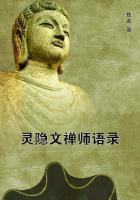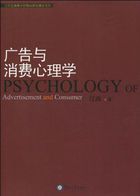In these circumstances it is not surprising that one of the most prominent characteristics of the time was a boundless, child-like faith in the so-called "latest results of science." Infallible science was supposed to have found the solution of all political and social problems. What a reformer had to do--and who was not a would-be reformer in those days?--was merely to study the best authorities. Their works had been long rigidly excluded by the Press censure, but now that it was possible to obtain them, they were read with avidity. Chief among the new, infallible prophets whose works were profoundly venerated was Auguste Comte, the inventor of Positivism. In his classification of the sciences the crowning of the edifice was sociology, which taught how to organise human society on scientific principles. Russia had merely to adopt the principles laid down and expounded at great length in the Cours de Philosophie Positive. There Comte explained that humanity had to pass through three stages of intellectual development--the religious, the metaphysical, and the positive--and that the most advanced nations, after spending centuries in the two first, were entering on the third. Russia must endeavour, therefore, to get into the positive stage as quickly as possible, and there was reason to believe that, in consequence of certain ethnographical and historical peculiarities, she could make the transition more quickly than other nations. After Comte's works, the book which found, for a time, most favour was Buckle's "History of Civilisation," which seemed to reduce history and progress to a matter of statistics, and which laid down the principle that progress is always in the inverse ratio of the influence of theological conceptions. This principle was regarded as of great practical importance, and the conclusion drawn from it was that rapid national progress was certain if only the influence of religion and theology could be destroyed. Very popular, too, was John Stuart Mill, because he was "imbued with enthusiasm for humanity and female emancipation"; and in his tract on Utilitarianism he showed that morality was simply the crystallised experience of many generations as to what was most conducive to the greatest good of the greatest number. The minor prophets of the time, among whom Buchner occupied a prominent place, are too numerous to mention.
Strange to say, the newest and most advanced doctrines appeared regularly, under a very thin and transparent veil, in the St.
Petersburg daily Press, and especially in the thick monthly magazines, which were as big as, or bigger than, our venerable quarterlies. The art of writing and reading "between the lines,"
not altogether unknown under the Draconian regime of Nicholas I., was now developed to such a marvellous extent that almost any thing could be written clearly enough to be understood by the initiated without calling for the thunderbolts of the Press censors, which was now only intermittently severe. Indeed, the Press censors themselves were sometimes carried away by the reform enthusiasm.
One of them long afterwards related to me that during "the mad time," as he called it, in the course of a single year he had received from his superiors no less than seventeen reprimands for passing objectionable articles without remark.
The movement found its warmest partisans among the students and young literary men, but not a few grey-beards were to be found among the youthful apostles. All who read the periodical literature became more or less imbued with the new spirit; but it must be presumed that many of those who discoursed most eloquently had no clear idea of what they were talking about; for even at a later date, when the novices had had time to acquaint themselves with the doctrines they professed, I often encountered the most astounding ignorance. Let me give one instance by way of illustration:
A young gentleman who was in the habit of talking glibly about the necessity of scientifically reorganising human society, declared to me one day that not only sociology, but also biology should be taken into consideration. Confessing my complete ignorance of the latter science, I requested him to enlighten me by giving me an instance of a biological principle which could be applied to social regeneration. He looked confused, and tried to ride out of the difficulty on vague general phrases; but I persistently kept him to the point, and maliciously suggested that as an alternative he might cite to me a biological principle which could NOT be used for such a purpose. Again he failed, and it became evident to all present that of biology, about which he talked so often, he knew absolutely nothing but the name! After this I frequently employed the same pseudo-Socratic method of discussion, and very often with a similar result. Not one in fifty, perhaps, ever attempted to reduce the current hazy conceptions to a concrete form. The enthusiasm was not the less intense, however, on that account.
At first the partisans of the movement seemed desirous of assisting, rather than of opposing or undermining the Government, and so long as they merely talked academically about scientific principles and similar vague entities, the Government felt no necessity for energetic interference; but as early as 1861 symptoms of a change in the character of the movement became apparent. A
secret society of officers organised a small printing-press in the building of the Headquarters Staff and issued clandestinely three numbers of a periodical called the Velikoruss (Great Russian), which advocated administrative reform, the convocation of a constituent assembly, and the emancipation of Poland from Russian rule. A few months later (April, 1862) a seditious proclamation appeared, professing to emanate from a central revolutionary committee, and declaring that the Romanoffs must expiate with their blood the misery of the people.















